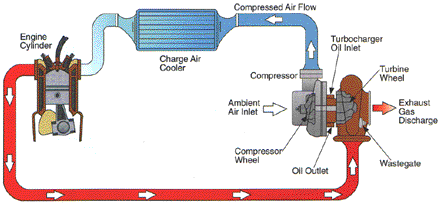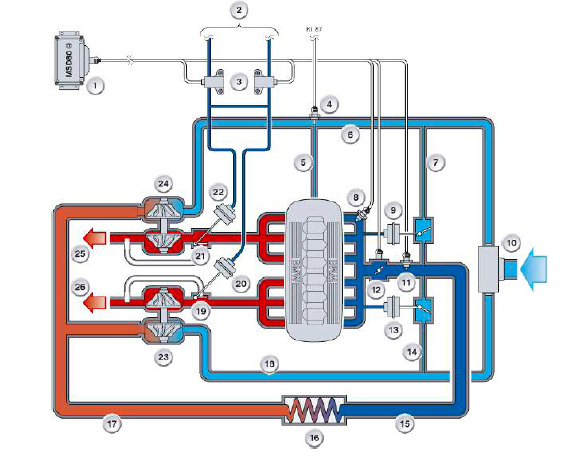Mavik
New Member
- Joined
- Jun 28, 2011
- Messages
- 1,485
- Points
- 0
Good stuff bro, I learned a lot! Like I said I seem to be more on the theoretical portion rather than actual. My experience when swapping to a larger intercooler didn't decrease engine oil temp but rather my turbo could hold the boost longer especially during mid rangesilverbullet said:Nice diagram bro! Btw, the diagram is a bit unclear on what drives the turbo (turbine)? The hot exhaust gas. The turbine is connected to the compressor via a shaft, when the turbine spins, the compressor then spins and compresses the air from the intake. (I stand corrected, but hopefully this is still valid from what I've learned in my final year 10+ years ago)
Sorry my last sentence was meant to say:
Cooler exhaust gas ---> Less heat transferred to the turbocharger while spinning the turbine ---> Less heat transferred to the oil while cooling the turbos ---> Lower oil temp
Anyway heat is very subjective, the exhaust gases passing through the turbine section of the turbocharger can vary from 450°C to as high as 1000°C in extreme conditions. So imagine that under our closed hood, confined space and hot weather. How it will affect the overall engine temp without additional cooling. Again I'm just saying I got better oil temps after upgrading to a huge intercooler. That's all, don't have to agree with me or we can agree to disagree! Cheers and enjoy your D's. Peace out, this is no place for a petrolhead like me
The only question I have and I am thinking this logically.
Cooler exhaust gas = How does a cooler charged air equate to cooler exhaust gas? Exhaust gas is the by-product of the whole ignition process and the detonation in the chamber. Shouldn't the exhaust gas be a product of how hard the engine is pushed?
Also is your 335i having the additional oil cooler which BMW introduced in the 2007 models? Correct me if I am wrong, but your engine is cooled via the radiator which is a combination of coolant and water mix and the turbo charger is cooled via oil (hence the separate oil cooler http://blog.modbargains.com/why_bmw_n54_n55_need_an_oil_cooler/). Not too familiar with the N54/N55 engines but I am eyeing them in the near future


